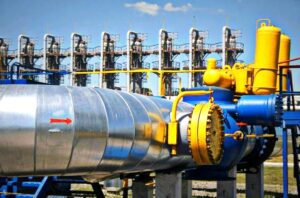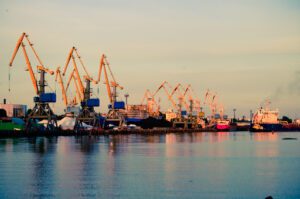
Michael Malchieli, the Co-Chair of the Group for Interparliamentary Relations of the Knesset of Israel with the Verkhovna Rada of Ukraine, and representatives of the Embassy of Israel, Knesset Member Moshe Arbel and Moshe Reuven Asman, the Chief rabbi of Ukraine, made a working visit to International European University.
During the meeting, participants signed an agreement on joint activities in different areas.

The agreement is aimed at regulating the current position between the University and partners, approving mutual cooperation conditions in the improvement of the educational activities, establishing communications between Israel and Ukraine to exchange cultural and training experience.
“Thank you for inviting me and showing your university. It seems to me that I’ve joined the political activity mistakenly. I’ve been always dreaming about education rather than politics, but the Supreme Being has brought me to the political sector. I don’t regret and try to do good deeds, but I’m extremely happy to get an opportunity to focus on education.

To my mind, your new education institution, which has succeeded within a short time, is similar to a share that initially costs little but suddenly raises and becomes quite expensive and valuable. I believe that, together with such a unique and professional team, we’ll be able to implement a lot of great things. Meanwhile, I would like to invite you to our Ministry of Education. I will personally organize this meeting. I’m sure that this collaborative work will enhance our friendship,” Mr. Malchieli said.
At the grand meeting, Michael Malchieli received the acknowledgement for assistance in higher education development, training of students with an active life attitude and fruitful cooperation with the University.
Joint efforts of the parties will encourage the efficient growth of cultural and scientific relations between Ukraine and Israel within the Program of cooperation in education, culture, youth and sports between the Cabinet of Ministers of Ukraine and the Government of the State of Israel in 2019-2022.

Researchers from Taras Shevchenko National University of Kyiv became the country’s first co-authors of the Nobel laureate in chemistry 2021 Benjamin List, according to the university’s official Facebook page.
“Researchers of the Faculty of Chemistry of Taras Shevchenko National University Oleksandr Hryhorenko, Director of the Institute of High Technologies of Taras Shevchenko National University, professor Ihor Komarov, former graduate student of the Institute of High Technologies Andriy Tymtsunyk are the first and currently the only co-authors of the Nobel laureate in chemistry 2021 Benjamin List,” the university said.
CHEMISTRY, CO-AUTHORS, HRYHORENKO, KIEV, KOMAROV, NOBEL LAUREATE, RESEARCHERS, SHEVCHENKO, TYMTSUNYK

The auction for the sale of frequencies for 5G communication will be held in Ukraine in 2022, Minister of Digital Transformation Mykhailo Fedorov has said.
“We have already launched research work. Next year we plan to put up frequencies [for 5G communication] at tenders for the operators,” he said during the Kyiv International Economic Forum on Thursday.
According to Fedorov, the active introduction of this communication technology in large cities of the country will begin in two years.
“I believe that at first it will be most relevant for industry, and then large cities, industrial centers will pick up, and gradually 5G will spread throughout the country,” he said.

The Verkhovna Rada of Ukraine has dismissed Chairman of the Parliament Dmytro Razumkov.
The relevant decision was supported by 284 MPs at the Thursday plenary session.
In particular, some 215 votes in support of this decision were given by the Servant of the People faction, while 20 ones by the Batkivschyna faction, six votes by Holos, the For the Future and Dovira factions gave 19 and 18 votes, respectively, six votes from non-factional MPs […]. The European Solidarity and Opposition Platform – For Life factions did not give a single vote for Razumkov’s resignation.
However, the Opposition Platform – For Life and European Solidarity factions gave 23 and 27 votes, respectively, against such a decision. Seven MPs from the Servant of the People faction, eight MPs from the Holos faction, one MP from the Batkivschyna faction and eight MPs from non-factional ones voted against.
From May to November 2019, Razumkov headed the Servant of the People political party, the first number on the list of which was in the early parliamentary elections in 2019. He held the post of the Ukrainian parliament’s chairman from August 29, 2019.
As reported, on September 30, head of the Servant of the People faction David Arakhamia sent a letter on behalf of the deputy faction to recall Razumkov from the post of chairman.

Gazprom is boosting gas pumping via Ukraine’s gas transmission system and is likely to exceed its contract obligations, but it will not be profitable to increase pumping even further, Russian President Vladimir Putin said during a meeting on the development of the energy sector.
“We are seeing all kinds of speculation on the topic of Ukraine’s gas transmission system, on supplies through it; I would also like to note that here now. Our contact obligations for supplies through Ukraine’s gas transmission system are 40 billion cubic meters of gas per year, and in 9M this year, Gazprom increased these supplies, this pumping, to be more precise, through the Ukrainian transmission system more than 8%. We can say with confidence that we will exceed our contract obligations for gas supplies through the territory of Ukraine. It is unprofitable for Gazprom to increase them further, because it is more expensive. Pumping through the new systems is significantly cheaper, by around $3 billion per year against corresponding supply volumes,” Putin said.

The concession tender for the port of Berdiansk may begin no earlier than the end of 2022, Anatoliy Timenko, Senior Project Manager of Maritime Reform at the Reform Support Team of the Ministry of Infrastructure, has said.
“Berdiansk port was a state initiative. The European delegation provided us with technical assistance in the form of a team of consultants who developed a pre-feasibility study for us. We had a large number of meetings and inconsistencies with them, everything dragged on. But I think we will already accept the latest version,” he told about the present progress of the project during the international exhibition NewPort in Kyiv on Wednesday.
According to him, by now a private company, which wants to develop a feasibility study, has already reached out to the department.
Speaking about other potential concession projects, Timenko said that the projects for the ports of Reni and Mariupol are not currently in an active phase.
“Mariupol and Reni – funding has not yet been found and there are no reasonable investors who would come up with an initiative,” he said.